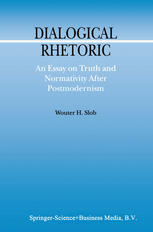

Most ebook files are in PDF format, so you can easily read them using various software such as Foxit Reader or directly on the Google Chrome browser.
Some ebook files are released by publishers in other formats such as .awz, .mobi, .epub, .fb2, etc. You may need to install specific software to read these formats on mobile/PC, such as Calibre.
Please read the tutorial at this link: https://ebookbell.com/faq
We offer FREE conversion to the popular formats you request; however, this may take some time. Therefore, right after payment, please email us, and we will try to provide the service as quickly as possible.
For some exceptional file formats or broken links (if any), please refrain from opening any disputes. Instead, email us first, and we will try to assist within a maximum of 6 hours.
EbookBell Team

4.3
58 reviewsContemporary developments in philosophy have declared truth as such troublesome, and not merely gaining access to it. In a systematic survey this study investigates what is at stake when truth is given up. A historical overview shows how the current problem of truth came about, and suggests ways to overcome rather than to repair the problem.
A key issue resulting from the loss of truth is the lack of normativity. Truth provided an alternative understanding of normativity. Elaborating on the `dialectical shift' in logic, a dialogico-rhetorical understanding of normativity is presented. Rather than requiring truth, agreement, or rationality, dialogico-rhetorical normativity is the result of a balance of particular standards. This type of normativity is shaped within discussions - by advancing and accepting arguments - and is not located in sets of predetermined rules. The result is a `small' but strong form of normativity.
If this understanding of normativity is viable, one of the central problems of contemporary philosophy, the problem of incommensurability, can be seen in a different light. As a result, truth reappears again. Surviving the postmodern criticisms, it is a matter of accountability rather than of description.